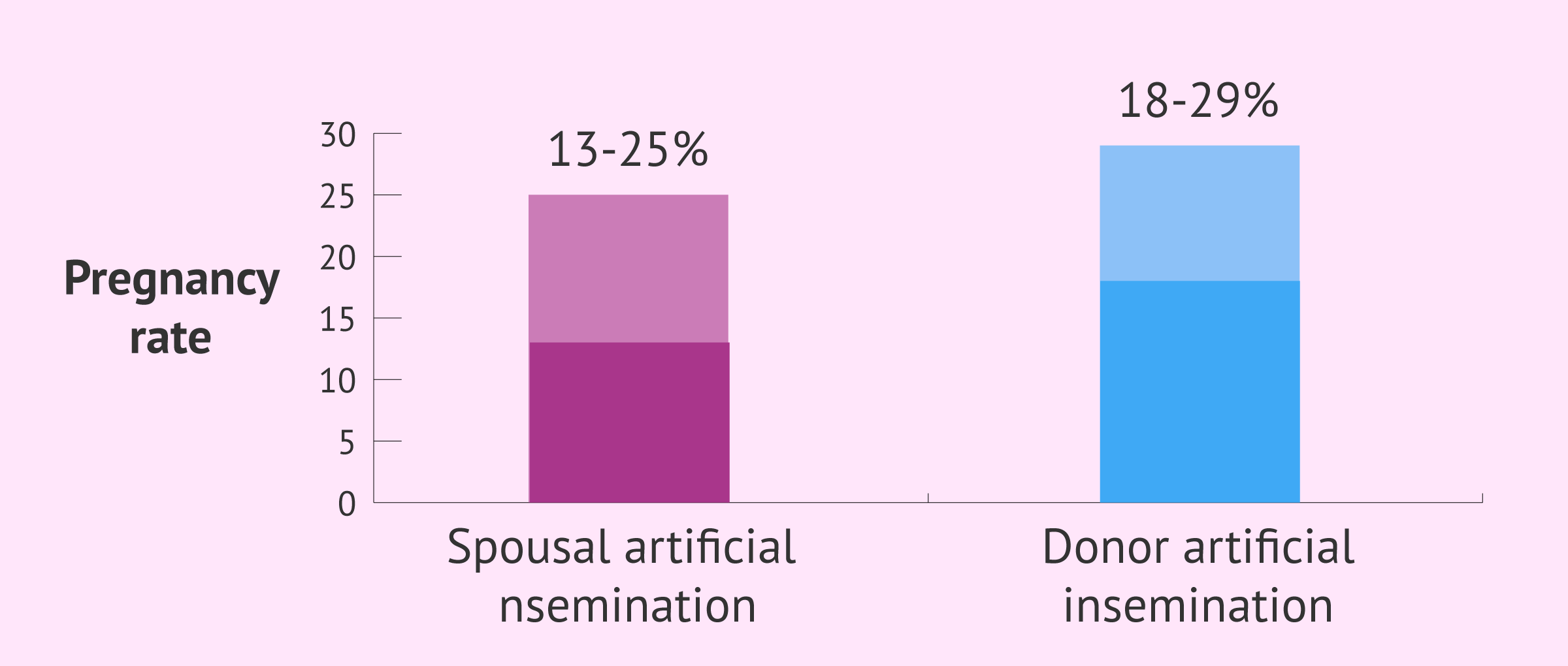Artificial insemination (AI) is a reproductive treatment that does not have a high probability of success compared to a natural pregnancy. However, it is important to take into account different factors such as the state of the endometrium, semen quality, infertility time, etc. to assess the percentage of achieving a pregnancy with AI.
The woman's age is an essential aspect for AI. Therefore, the pregnancy rate in women under 35 years of age is around 13-25%, while this percentage is reduced in women over 35 years of age. Furthermore, in women under 35 years of age, the pregnancy rate increases to 18-29% if donor sperm is used.
Read the full article on: What Is Artificial Insemination (AI)? – Process, Cost & Types ( 57).
By Andrea Rodrigo B.Sc., M.Sc. (embryologist), Elena Santiago Romero M.D. (gynecologist), Héctor Iván Izquierdo Urdinola M.D. (gynecologist), Marta Barranquero Gómez B.Sc., M.Sc. (embryologist), Patricia Recuerda Tomás B.Sc., M.Sc. (embryologist), Rebeca Reus BSc, MSc (embryologist), Silvia Azaña Gutiérrez B.Sc., M.Sc. (embryologist) and Cristina Algarra Goosman B.Sc., M.Sc. (psychologist).
Last Update: 12/30/2021
